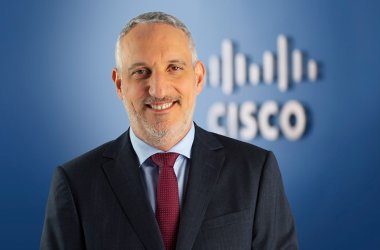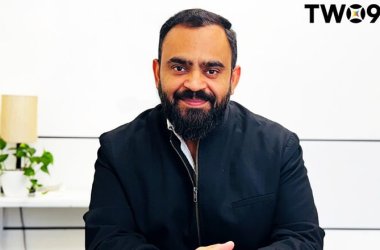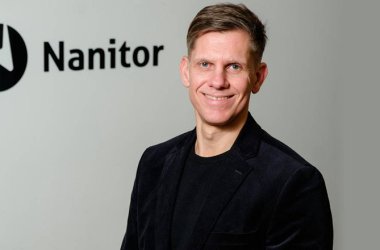
Vishal Singh shares powerful insights on driving autonomous networks, securing AI-powered cloud infrastructure, and accelerating digital transformation across global telcos.
Dubai — Nokia is pioneering the next phase of network evolution — from AI-driven cybersecurity to cloud-native flexibility — and why emerging markets hold immense potential for 5G-powered transformation.
Vishal Singh, Senior Vice-President and Head of Global Business for Cloud and Network Services at Nokia, drives a €3 billion global portfolio that is helping service providers and enterprises transition to cloud-native technologies, adopt as-a-service models, and build secure, intelligent networks. With his blend of technical depth and strategic foresight, Singh offers a front-row perspective on the future of telco AI and software in an exclusive interview with Sandhya D’Mello, Technology Editor, CPI Media Group.
Interview Excerpts:
How do you see the UAE evolving as a digital-first nation?
The UAE boasts the best networks in the region and consistently ranks high in benchmarks. The nation is heavily investing in AI, data centers, and partnerships with hyperscalers. The leadership in the UAE is visionary and proactive in embracing digital transformation, which serves as a model for the wider region. Having lived in Singapore for 20 years, I see many parallels in how the UAE is creating a hyper-digital infrastructure across sectors like airlines, banking, retail, and tourism, making it an emerging economic powerhouse.
Can you explain Nokia’s journey and leadership in the autonomous network space?
Autonomous networks as a concept are not new to us. We have long been managing the full lifecycle of services — from creation to delivery, deployment, fulfillment, and assurance. With the advent of 5G SA, cloudification, AI, and generative AI, the promise of autonomous networks is now being realised. Our portfolio and prior investments position us ahead of the curve. We’re already delivering results — for instance, stc and Nokia were recognised at FutureNet MENA for developing Autonomous Network Operations that has large-scale automation and intelligent operations. Other global operators like Bharti in India are also on this journey with us, leveraging our technology across various stages of TM Forum’s Autonomous Networks framework.
Can you elaborate on Nokia’s cloud strategy and how deploying software across any cloud is enabling telcos and enterprises?
Our core strategy is to focus on applications, not cloud infrastructure. We’ve consciously moved away from building our cloud stack and instead partner with players like Red Hat, AWS, Microsoft, and Google. Our applications are designed to run on any cloud — public, private, or hybrid. For example, in Telefónica Germany, our packet core runs on AWS, with signaling and policy on Google Cloud. Similarly, Dish Networks in the US leverage our solutions on AWS and Rogers in Canada are conducting trials.
“The flexibility of multi-cloud deployment is critical as the industry moves from virtualisation to true cloud-native models using Kubernetes and advanced automation.”
What are the key cybersecurity focus areas for AI-driven, cloud-native networks?
We’ve been in the security space for a long time, particularly in securing critical telecom infrastructure. One key area is identity and privileged access management for cloud infrastructure. Additionally, we focus on endpoint detection, network security, extended detection and response (XDR), certificate lifecycle management, and compliance. As cloudification and AI adoption grow, the attack surface expands. Our goal is to help customers build networks that are secure by design — not as an afterthought — through collaboration with ecosystem partners, customers, and system integrators.
How is Nokia supporting digital transformation in emerging markets?
Industries such as manufacturing, mining, transportation, and logistics often operate on legacy infrastructure. We address this through:
· Campus Networks: For secure and reliable on-prem connectivity.
· Wide-Area Networks: For sectors like public safety, railways, defense, and utilities that require broader, mission-critical connectivity.
We’re driving 5G adoption aggressively in these sectors. In the region, for example, we’re working with the likes of e& and du in the UAE as well as with stc in Saudi Arabia to build private networks and even mission-critical networks for public enterprises. Security remains a core pillar — we emphasise building networks that are secure by design.
How is data analytics shaping strategic decisions within Nokia’s Cloud and Network Services?
Telcos possess vast amounts of data, but historically, they haven’t fully leveraged it. OTT players have monetised it more effectively. We are now helping telcos harmonise data across the network to create actionable insights. This is critical for training large language models (LLMs) and driving use cases like churn reduction, anomaly detection, customer experience optimisation, and marketing. Our focus is on creating “data products” that make telco data ready for AI consumption, which in turn supports the vision of autonomous networks, because without intelligence and insights, automation isn’t possible.





